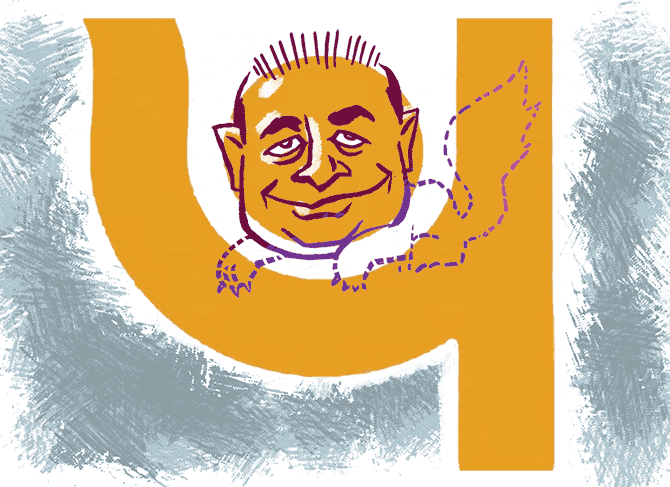The charges against the diamond merchant centre around his firms Diamonds R Us, Solar Exports and Stellar Diamonds making fraudulent use of a credit facility offered by the Punjab National Bank, known as 'letters of undertaking'.

The UK court hearing the extradition case of fugitive diamond merchant Nirav Modi, wanted in India on charges of fraud and money laundering amounting to an estimated $2 billion, on Thursday adjourned the trial to be resumed from September 7.
District Judge Samuel Goozee, presiding over the trial at Westminster Magistrates' Court in London, set June 11 as the date for the 49-year-old diamond merchant to be produced via videolink from Wandsworth Prison in south-west London for his 28-day call-over remand hearing, with the case itself set for a case management hearing at the end of August.
“I hope Mr Modi by the time we get to September, the current restrictions on movement from prisons have been eased and you can be in court in person to follow the proceedings,” the judge told Modi, at the end of a four-day partial hearing of the case.
“The situation is being kept under constant review as we react to the current pandemic,” he said, in reference to the partly remote setting in which the case was heard this week due to the coronavirus lockdown.
The first part of the case focused on establishing a prima facie case against Modi but the schedule had to be re-timetabled as the government of India submitted a further set of documents as “corroboratory evidence” on Wednesday.
The judge allowed the additional evidence to be introduced but agreed that Modi's defence team would require enough time to “digest” them.
Therefore, a hearing already planned to deal with a second extradition request, made by the Indian authorities and certified by UK Home Secretary Priti Patel earlier this year on two additional charges of "causing the disappearance of evidence" and intimidating witnesses or “criminal intimidation to cause death”, has been effectively extended to conclude the prima facie case arguments.
The judge has already indicated that the two requests are “inextricably linked” and therefore he would be handing down an overall judgment at the conclusion of the second hearing, expected to be held between September 7 and 11.
On Thursday, Modi's barrister Clare Montgomery deposed a gems expert, Richard Taylor, as a defence witness who spoke at length about the nitty-gritties of the diamond trade and how the Nirav Modi brand was well-known around the world.
“The industry relies on sending out high-value product to companies and to do that they require trust and confidence,” he said, in an attempt to establish Modi's credibility in the business.
"India is the largest and most important centre of diamond cutting… it was a very significant trend that he [Modi] was part of,” he added.
The Crown Prosecution Service (CPS), arguing on behalf of the Indian government, cross-examined him to try and establish that the process of “dismantling” diamonds or pearls from jewellery as part of an “everlasting cycle” with no outward sales was not a commercially sound practice.
His witness statement follows that of Thierry Fritsch, a high-end French jewellery expert, and Justice Abhay Thipsay from India during the course of the week.
Modi has been following the court proceedings via videolink from a room at Wandsworth Prison, where he has been lodged since his arrest in March last year.
Dressed in formals, he can be seen listening carefully and occasionally making notes as he refers to papers on a desk.
He has made repeated attempts at bail over the past year, each of which were turned down as he is deemed a flight risk.
The jeweller was arrested on March 19, 2019, on an extradition warrant executed by Scotland Yard.
The charges against the diamond merchant centre around his firms Diamonds R Us, Solar Exports and Stellar Diamonds making fraudulent use of a credit facility offered by the Punjab National Bank (PNB), known as “letters of undertaking” (LoUs).
According to the Indian government's case, a number of PNB staff conspired with Modi to ensure LoUs were issued to these companies without ensuring they were subject to the required credit check, without recording the issuance of the LoUs and without charging the required commission upon the transactions.
This resulted in a fraud amounting to nearly $2 billion.











 © 2025
© 2025